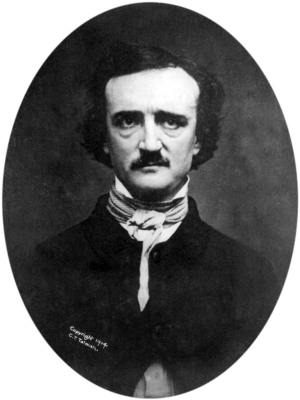
Michael Keith rewrote Edgar Allan Poe’s poem The Raven to turn it into a mnemonic for pi. Keith’s version follows the original quite well considering his severe constraints. The full poem has 18 stanzas. Here I include only the first and last. The full version can be found here.
* * *
Poe, E.
Near a Raven
Midnights so dreary, tired and weary,
Silently pondering volumes extolling all by-now obsolete lore,
During my rather long nap — the weirdest tap!
An ominous vibrating sound disturbing my chamber’s antedoor.
“This,” I whispered quietly, “I ignore.”
…
So he sitteth, observing always, perching ominously on these doorways.
Squatting on the stony bust so untroubled, O therefore.
Suffering stark raven’s conversings, I am so condemned, subserving,
To a nightmare cursed, containing miseries galore.
Thus henceforth, I’ll rise (from a darkness, a grave) — nevermore!
* * *
The number of letters in most words encodes a digit of pi. Words with 10 letters encode a zero. Words with more than 10 letters encode two consecutive digits of pi. The poem encodes the first 740 digits of pi.

